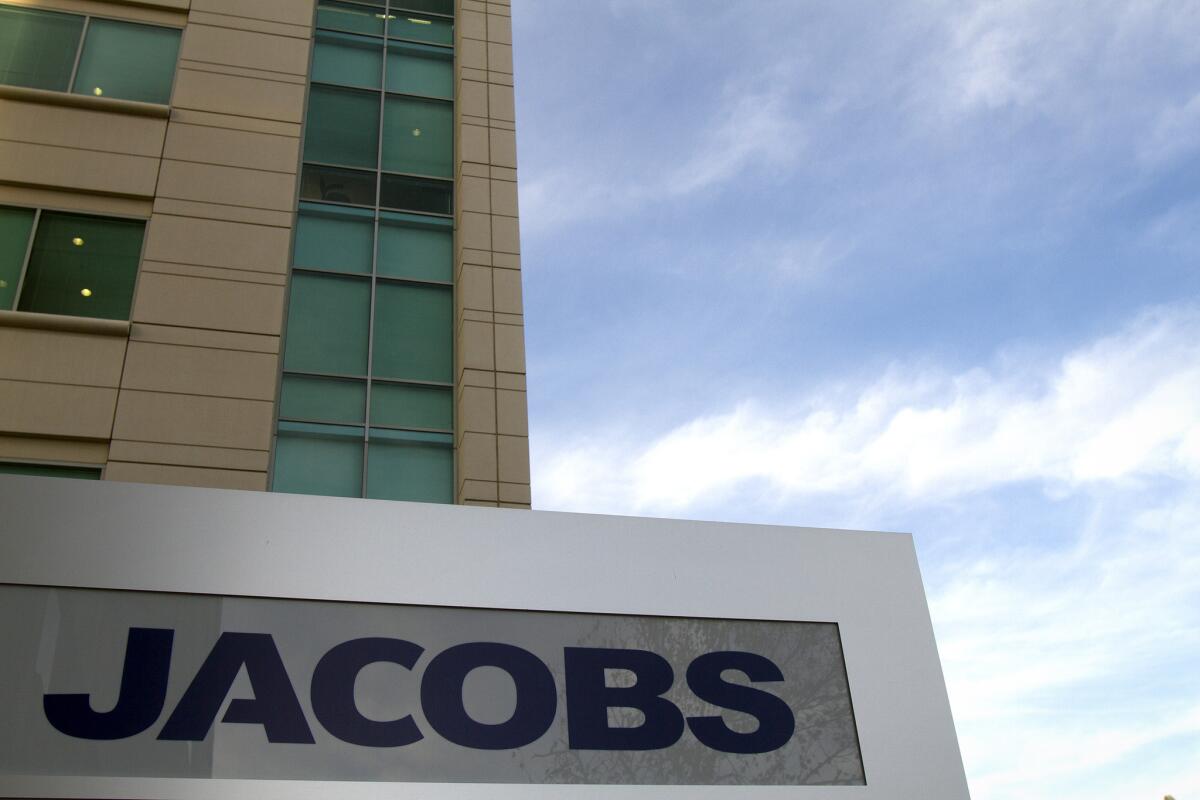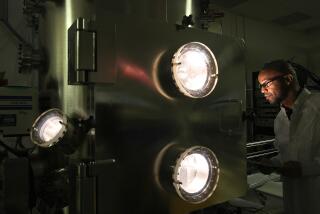Jacobs Engineering is building on its success with acquisitions

Jacobs Engineering Group Inc., which started as a one-man consulting shop in 1947, has grown into one of the largest and most respected U.S. engineering firms.
The Pasadena construction consulting company handles engineering, architecture and construction projects for governments and businesses worldwide.
It has clients in oil and gas, chemicals, aerospace, defense, mining, pharmaceuticals, power, paper, technology, food and other industries.
Founder Joseph J. Jacobs, the son of Lebanese parents, built the company into a $1-billion business by the time he retired in 1992 at age 76, pushing it into the lucrative environmental services business.
At the time he stepped down, he told the Los Angeles Times that he credited much of his success to an ego that he conceded was “large, inflated, overwhelming — choose your own adjective.” He died in 2004.
The company’s headquarters are on Lake Avenue in Pasadena, but it operates 200 satellite offices throughout North America and in South America, Europe, the Middle East, India, Australia, Africa and Asia. Jacobs has more than 48,000 employees.
The latest
Jacobs announced this month that it had completed its $1.2-billion purchase of Australian professional services firm Sinclair Knight Merz, the latest in a series of acquisitions.
The transaction gives Jacobs a company with $1.2 billion in annual revenue.
The acquisition would also help Jacobs gain access to geographic regions it had not penetrated and should increase its annual revenue about 10%, Michael S. Dudas, an analyst with Sterne, Agee & Leach Inc., said in a research note.
The geographical holes that Sinclair would fill are in South America, Britain, Asia and Australia, Dudas said.
“The combination of Jacobs and SKM further diversifies our geographic offerings and the end-markets we serve,” Jacobs Chief Executive Craig L. Martin said in a statement announcing the completion of the deal. “We look forward to integrating the two companies and see many excellent opportunities ahead to support our clients, develop our people and grow our business.”
Accomplishments
One of the company’s most significant environmental contracts made it the primary subcontractor in a $2.2-billion cleanup of the Fernald, Ohio, nuclear weapons plant, the largest federal environmental cleanup of its kind.
That helped position the company to benefit from increased business generated by the environmental policies of then President Clinton.
By the end of its latest fiscal year, Sept. 27, the company was more than 10 times larger than its founder had left it.
Jacobs reported a record profit of $423 million for its fiscal year on revenue of $11.8 billion. That was 12% more than the $379 million it earned in its previous fiscal year, when sales reached $10.9 billion.
“We grew organically by 10%, and both our business and our opportunities continue to grow,” Martin said last month.
“We’re discovering new and innovative ways to add sustainable value to our clients’ projects around the world,” he said. “Our backlog is good, and we’re positive about 2014.”
Challenges
Jacobs’ business is tied to the health of the global economy and commodity prices, which factor significantly into its profitability.
“An economic slowdown and falling commodity prices could reduce cash flows and capital expenditure plans for Jacobs’ customer base,” analyst Dudas said.
“Subcontractor performance and craft labor availability can impact overall project execution, especially for larger complex projects in remote or unpredictable areas,” he said.
Analyst views
Ten analysts recommend buying the stock, and 12 suggest holding it. None say investors should sell it. They estimate the stock will be selling for $65.14 a share in a year, 5.5% higher than Friday’s close of $61.73.
“Jacobs remains a high-quality equity that reflects a long-term defendable business model, a solid management team, a conservative and strong financial profile,” Dudas said.
He said he was impressed by Jacobs’ cash position of about $850 million, which could drive acquisition opportunities. He set a one-year price target of $70 for the company’s stock.
“A handful of smaller acquisitions during 2013 and some larger opportunities should enhance growth during 2014,” Dudas said.
John B. Rogers, an analyst with D.A. Davidson & Co., said his firm recently reduced its estimated near-term earnings for Jacobs but remains bullish about the company’s future.
“Based on backlog/order growth, improving work prospects and potential for acquisitions, we continue to expect substantial growth over the next several years,” Rogers said in research commentary.
Rogers also has a $70 price target for the stock.







